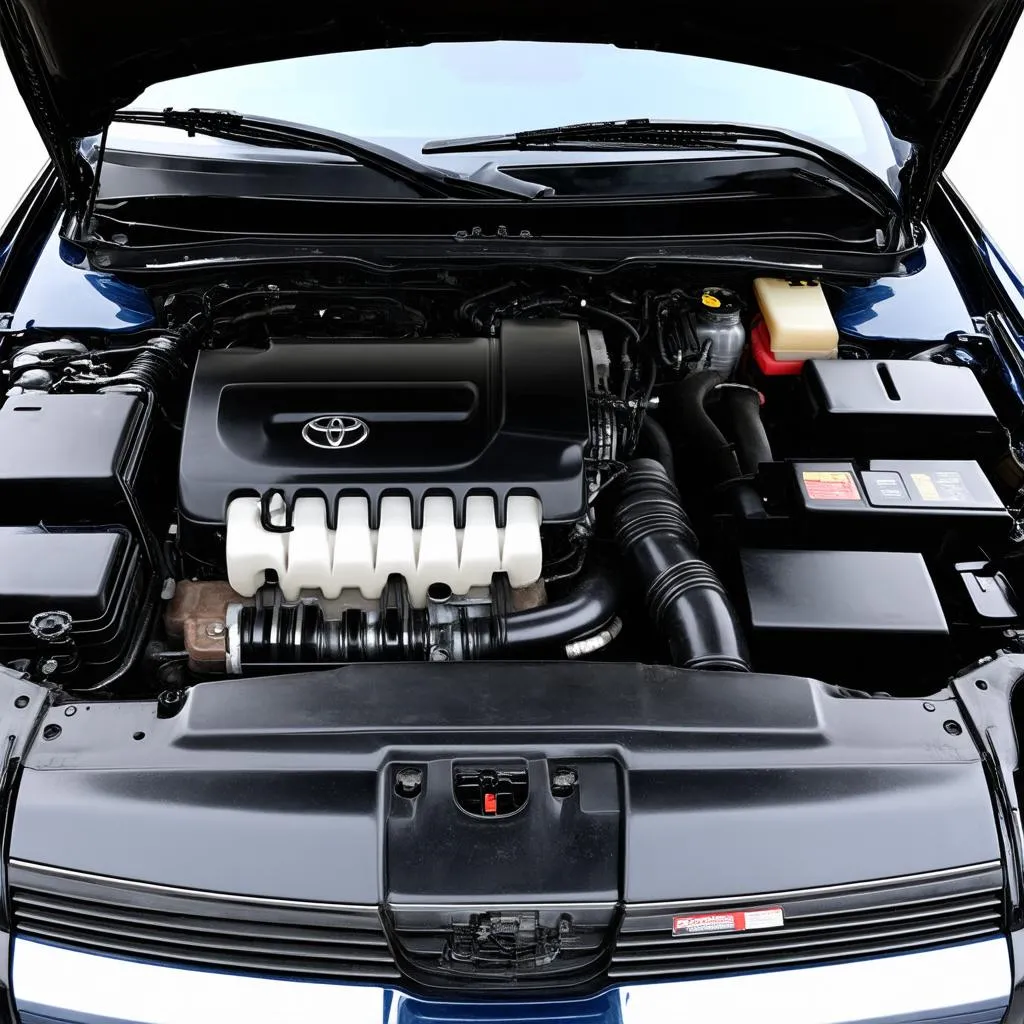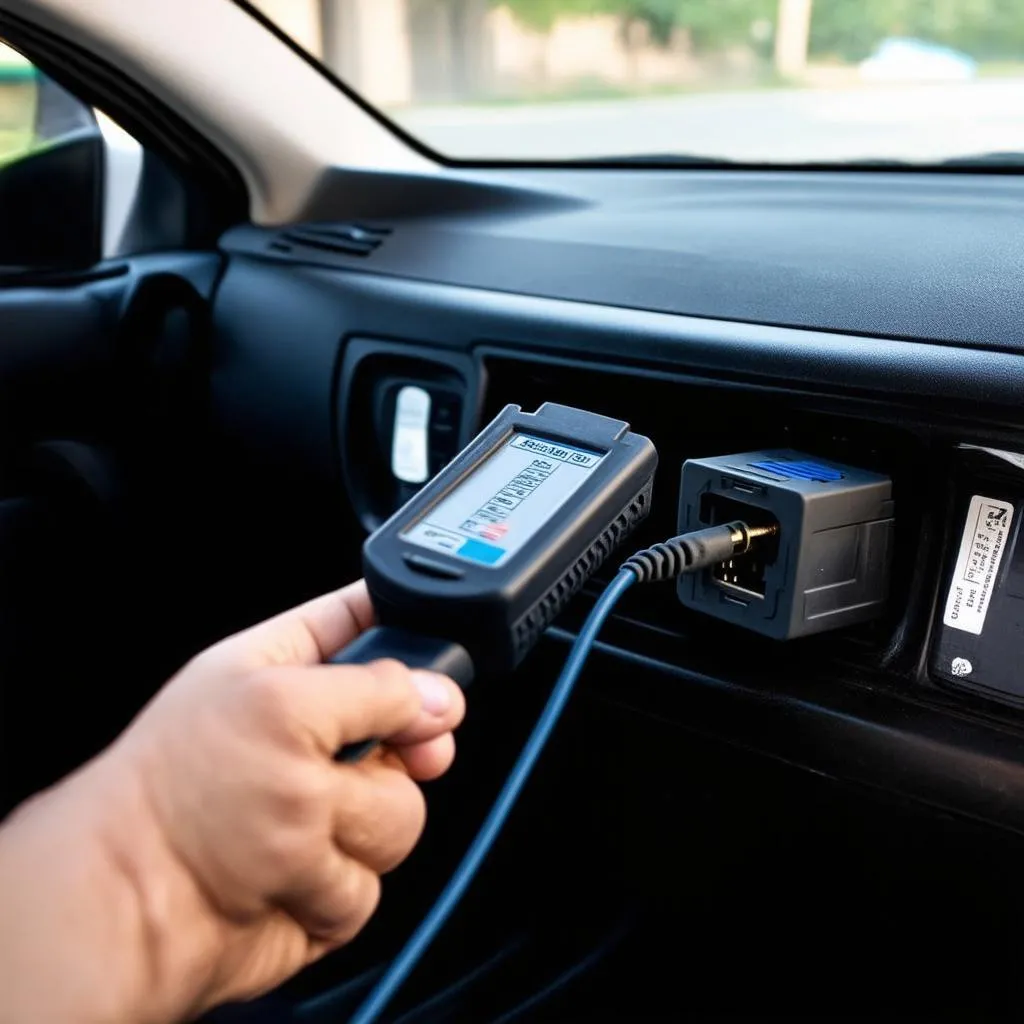“My check engine light just came on, and I feel a slight dip in my car’s performance.” Sounds familiar? This is a common tale for many car owners, especially those with a 2000 Toyota Avalon. But don’t fret! This time, it’s probably just your car trying to tell you something through those cryptic OBD codes.
If you’ve recently plugged in your OBD-II scanner and encountered the codes 1130, 1133, or 1135, this article is your guide to understanding what they mean and how to address them.
What Do OBD Codes 1130, 1133, and 1135 Mean?
In the intricate language of your car’s computer system, these codes point to potential issues with the Air/Fuel Ratio (A/F) sensor or its circuit, specifically on Bank 1 Sensor 1.
-
P1130 indicates a malfunctioning A/F sensor heater circuit. This heater helps the sensor reach optimal operating temperature quickly, ensuring accurate readings.
-
P1133 suggests a problem with the A/F sensor circuit, indicating a voltage reading that’s too high. This could be due to a faulty sensor, wiring issues, or even a vacuum leak.
-
P1135 signals a problem with the A/F sensor heater circuit, this time indicating the heater is taking too long to warm up the sensor.
These codes essentially mean your car’s engine isn’t getting the ideal air-fuel mixture for combustion.
 Toyota Avalon Engine
Toyota Avalon Engine
Why Should You Care About These Codes?
Ignoring these codes can lead to several problems:
- Reduced Fuel Economy: An improper air-fuel mixture can cause your engine to burn more fuel than necessary, impacting your wallet and the environment.
- Poor Engine Performance: You might experience rough idling, hesitation, or reduced acceleration.
- Increased Emissions: A rich fuel mixture (too much fuel) can lead to increased emissions, negatively impacting air quality.
- Damage to Catalytic Converter: A malfunctioning A/F sensor can ultimately damage the catalytic converter, leading to costly repairs.
Common Causes and Solutions
Several factors can trigger these OBD codes:
- Faulty A/F Sensor: The most common culprit is a faulty sensor. Replacing it is often the most effective solution.
- Wiring Issues: Damaged or corroded wires in the sensor circuit can disrupt the signal, leading to inaccurate readings. Inspecting and repairing the wiring harness might be necessary.
- Vacuum Leaks: A leak in the intake manifold or vacuum hoses can disrupt the air-fuel mixture. Locating and fixing the leak is crucial.
- Faulty ECU: In rare cases, a faulty Engine Control Unit (ECU) might misinterpret sensor data. Having your ECU diagnosed by a professional is recommended.
Troubleshooting Tips
Before rushing to a mechanic, here are some preliminary checks you can perform:
- Visually inspect the A/F sensor and its wiring for any visible damage or loose connections.
- Check for vacuum leaks by listening for hissing sounds or using a carburetor cleaner spray around potential leak points.
- Consult your car’s repair manual for specific instructions and diagrams.
Frequently Asked Questions
Q: Can I drive my car with these codes?
While you might be able to drive for a short period, it’s not recommended. Prolonged driving with these codes can lead to further damage and costlier repairs.
Q: Are these codes specific to the 2000 Toyota Avalon?
While these codes can appear in other vehicles, the specific causes and solutions might vary.
Q: How much does it cost to fix these codes?
The cost depends on the underlying cause. Replacing the A/F sensor might cost around $100-$300, while addressing wiring issues or vacuum leaks can range from $50 to $500 or more depending on the severity.
 Car Diagnostic Tool
Car Diagnostic Tool
Beyond the Technical: A Touch of Feng Shui
In some cultures, a car is seen as an extension of its owner, reflecting their energy and well-being. Just like maintaining a balanced and harmonious living space, keeping your car in optimal condition is believed to promote positive energy and smooth journeys. Addressing these OBD codes promptly can be seen as restoring balance and ensuring a harmonious relationship between you and your vehicle.
Need More Help?
Diagnosing and fixing car problems can be challenging. If you’re unsure about anything or need further assistance, don’t hesitate to contact our team of auto experts via WhatsApp at +84767531508. We offer 24/7 support and can help you troubleshoot your car problems or even schedule an appointment with a trusted mechanic in your area.
Remember, a well-maintained car is a happy car, and a happy car makes for a happy driver! For more insightful articles on car maintenance, repair, and everything automotive, explore our website, techcarusa.com.
